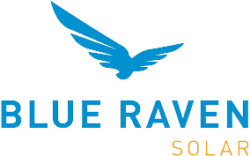Benefits of Solar Energy
Solar energy comes with multiple benefits. Let's look at a few of them.
- Reduced carbon footprint: Using solar is a surefire way to lower your carbon footprint and home fossil fuel dependency.
- Better energy independence: Solar panel systems with battery backups and storage systems function through power outages and emergencies, and you won't have to rely on the electrical grid for your safety and well-being.
- Lowered energy bills: You can skip the added cost of grid-tied power by creating some electricity at home. Plus, many states provide net metering which can allow you to sell your unused energy back to help pay for your energy bill.
What Solar Incentives Are Available to Corpus Christi Homeowners?
Governments and utility companies often incentivize homeowners for going solar. Here are some of the tax credits, rebates, or other programs you could qualify for.
Incentive Type: Property Tax Incentive
Website: comptroller.texas.govIncentive Amount:
100%
Incentive Type: Rebate Program
Website: texasgasservice.comIncentive Amount:
Free Equipment Program: Free appliance installation and weatherization services
Home Improvement (includes attic insulation, duct sealing, duct insulation, duct replacement, high-efficiency gas furnace, and Wi-Fi thermostat: Up to $1000
Solar Water Heater With Natural Gas Backup: $750
Tankless or Super High-efficiency Water Heater: $650
Furnace: $675
Furnace Tune-Up: $40
Natural Gas Dryer with moisture sensor: $225
Natural Gas Dryer Stub: $300
Incentive Type: Personal Tax Credit
Website: ecowatch.comIncentive Amount:
30% federal tax credit for systems placed in service after 12/31/2021 and before 01/01/2033. Good for: solar water heat, solar photovoltaics, biomass, geothermal heat pumps, wind (small), fuel cells using renewable fuels.
How To Choose the Best Solar Company in Corpus Christi
The more thorough your provider search is, the better your solar installation will ultimately perform. Consider each of these aspects in your service provider search.
Licensing and Training
All solar contractors in Texas must have a state electrical contractors' license from the Texas Department of Licensing and Regulation. The Texas State Board of Plumbing Examiners regulates plumbing regulations and licensing standards for solar thermal installers. You should also visit a company's website to learn about its private credentials. Two of the most recognized are the Solar Heating Installer and PV Installation Professional certificates, awarded by the North American Board of Certified Energy Practitioners (NABCEP). Some companies don't publish this information online, so you should also ask your estimator about them.
Cost of Solar Panels in Corpus Christi
The style of solar panels you choose decides how much energy you can produce. Monocrystalline panels and high-quality and give you the best performance but cost more upfront. Polycrystalline panels produce less power, but they're worth it if you want a traditional panel style without the high cost. Thin-film panels aren't recommended for large residential installations, but they are ideal for small projects like converting RVs and sheds.
If you need to charge an electric vehicle (EV) or use your solar power in dark weather, you can pay extra for add-ons. By choosing the right components, you can make your panel array more efficient and convenient to use. Not every solar contractor provides these extras, so look for a company that installs them if it's a priority for you.
Generally speaking, it costs about $16,650 for a five-kilowatt solar array in Corpus Christi. This table lists more specific pricing information for different solar panel types and system components in your area.
| Solar Panel Cost | Average Cost |
|---|---|
| Solar Monocrystalline | $1,155 |
| Solar Polycrystalline | $901 |
| Thin-Film | $527 |
| Solar Battery | $739 |
| Solar Home EV Charger | $2,773 |
Financing Solar Energy in Corpus Christi
Choosing the correct financing solution will affect your overall solar system cost and possible savings. Common payment options include loans, cash payments, power purchase agreements, and leases. Though it involves a large up-front payment, cash is the most cost-effective choice because it qualifies you for solar incentives and doesn't accrue interest. Solar loans are the next best option. As with a car or home loan, you'll pay a monthly rate towards system ownership, including interest. You can still apply for valuable solar incentives, and depending on your lender, you could put as little as $0 down. Solar leases let you use your panels for a set monthly rate, while PPAs let you pay just for the energy you use, similar to an electric bill. Both options disqualify you for solar incentives and do not provide you system ownership. Solar experts generally don't recommend them, but they might be suitable in some cases. Look for companies that offer two or more payment plans to find the right fit for your pocket.
The table below lists the average payback periods for different capacities of solar systems in Corpus Christi.
You can claim a 26% federal solar tax credit from the IRS for new residential solar systems purchased before 2032. Additionally, local governments and utilities may have their own rebates and financing plans that could reduce your total cost even more.
| Solar System Capacity | Estimated Payback period |
|---|---|
| 1 kW | 2.1 years |
| 2 kW | 4.2 years |
| 5 kW | 10.6 years |
| 10 kW | 21.2 years |
Ready to Get a Quote on Your Solar Project?
Please enter a valid 5-digit zip code!
Frequently Asked Questions About Solar in Corpus Christi
How much energy and money could I save per year by switching to solar?
How widespread is solar energy in Corpus Christi?
Will solar energy systems increase my Corpus Christi home price?
How many years will an average solar system last?
What size should my new Corpus Christi solar system be?
How long does it take to pay back a solar loan in Corpus Christi?
What's the difference between a PPA and a solar lease?
You don't own the panels with either option, though you can choose to "buy out" of the contract for a fee.
To share feedback or ask a question about this article, send a note to our Reviews Team at reviewsteam@thisoldhousereviews.com.

















